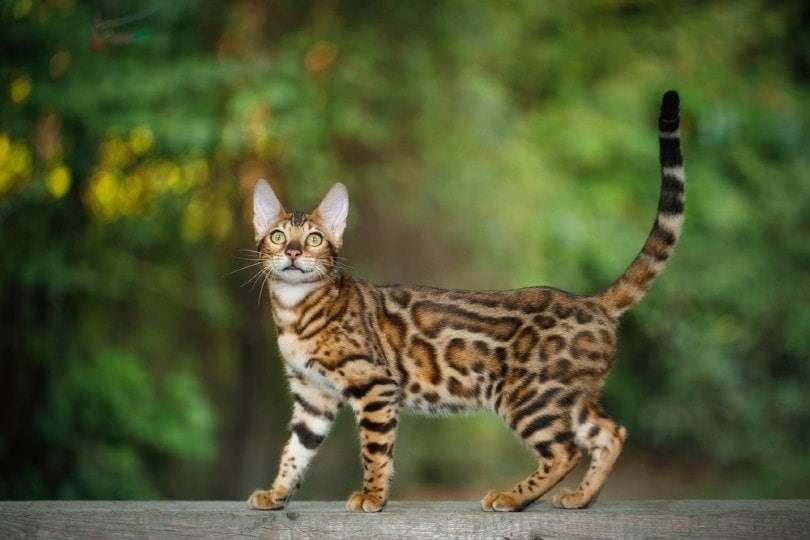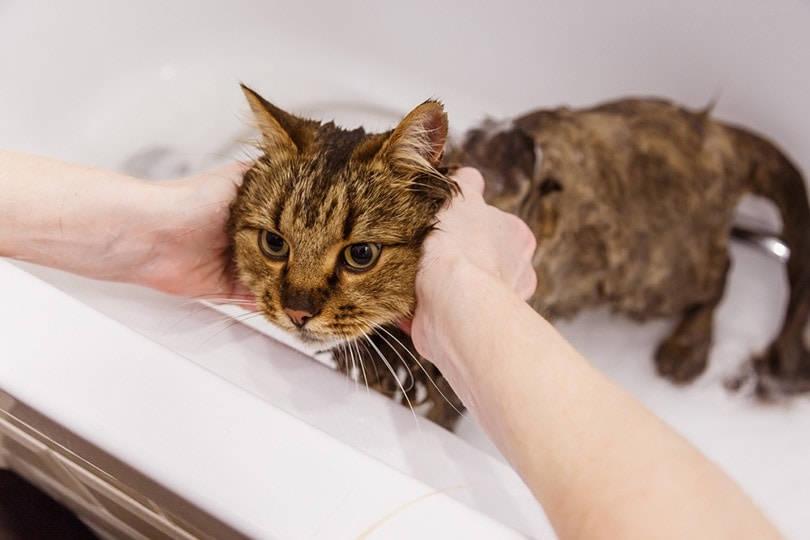Why Are Tabby Cats So Vocal? 8 Vet-Approved Reasons
Updated on
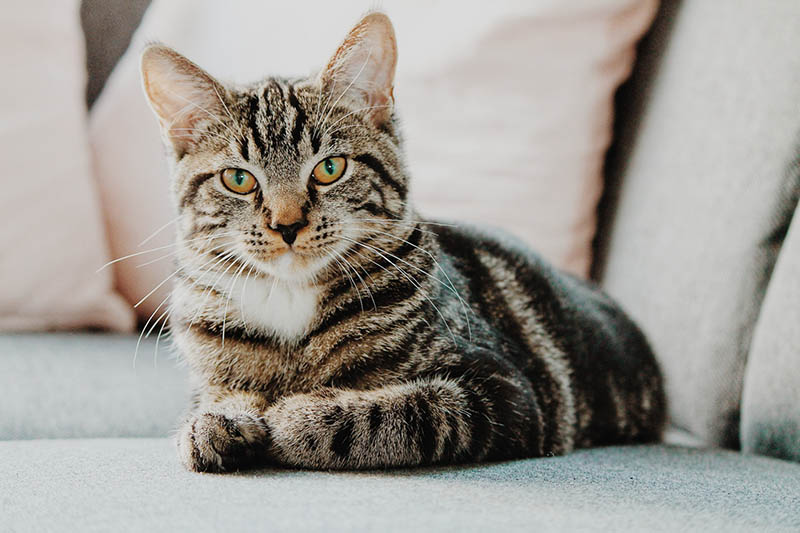
If you are like most cat parents, you are probably not sure why your cat is meowing a lot of the time. Various reasons can cause your tabby cat to meow; below, you will find the most common ones. From being hungry to seeking attention, many cats show their emotions through being vocal; however, if the meowing is paired with some other signs, such as lethargy or changes in appetite, you should consider a visit to your veterinarian.
Keep reading to learn more about your tabby cat’s body language and possible reasons for meowing.
The 8 Reasons Tabby Cats Are So Vocal
1. Asking for Food
We all know cats love and live by their routines. They adore having a fixed schedule, which you must follow for them to stay content. They are demanding sidekicks, especially around mealtime. If you are late in providing them breakfast, they will confidently let you know by meowing their hearts out.
You can expect to hear from them about their dissatisfaction, so if your tabby cat is meowing every morning, it might be to remind you of your duties. Ensure to provide them with food, and if they stop meowing, you will know to feed them earlier next time.
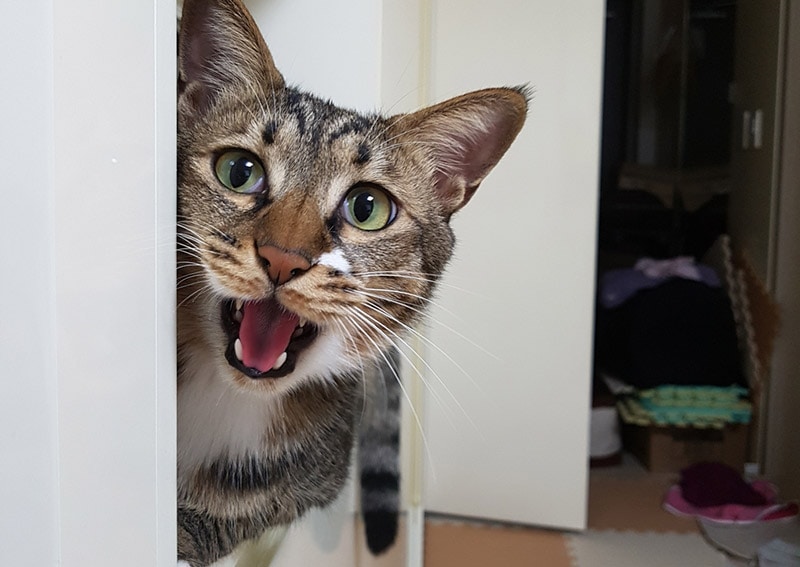
2. Your Tabby Is a Kitten
Tabby cats, and cats in general, tend to be quite vocal during their younger years. When they are still kittens, they depend on being vocal to get attention from their mother and communicate with her. They might call out for many different reasons when they are kittens, as it is their way of communicating. Sometimes, they will express their fear of a strange person or place, or they are asking to be petted by you, which is when they will meow and seek physical touch. Kittens are quite dependent on their mother or humans in the beginning and will want to have all the focus directed toward them.
3. Greeting
As you’ve probably noticed, your cat might start meowing and being excessively vocal when you come home after a short trip. While this might be a strange habit from your perspective, your cat is just expressing excitement. While dogs whine, bark, and jump all over you, cats express their emotions more subtly. You might hear them meowing at you and calling for you to pet them, so it will usually happen when you’ve been away from home, and they are happy to see you.
4. Your Tabby Cat Is a Senior
As your tabby cat ages, they will gradually exhibit symptoms of old age. This often occurs during nighttime, when your tabby cat wakes up and starts meowing for no apparent reason. Senior cats can suffer from Cognitive Dysfunction Syndrome (CDS), where they might experience mental confusion.1 Senior cats should visit their vet twice a year, to catch any medical changes that arise early, and to find ways to help keep them healthy and happy.
5. Boredom and Seeking Attention
Many people believe cats are independent creatures that prefer being alone most of the time. This is a common misconception, as tabby cats are social and love spending time with their human family. While cats are independent for the most part, they can get lonely, especially if you leave them at home alone for prolonged periods. You will know your cat is lonely or needs attention when they start being overly vocal with you. They might ask you to pet them or play with them by calling you and demanding your attention.
Cats can get separation anxiety if they spend too much time alone, so bonding with them and giving them your attention throughout the day is crucial.
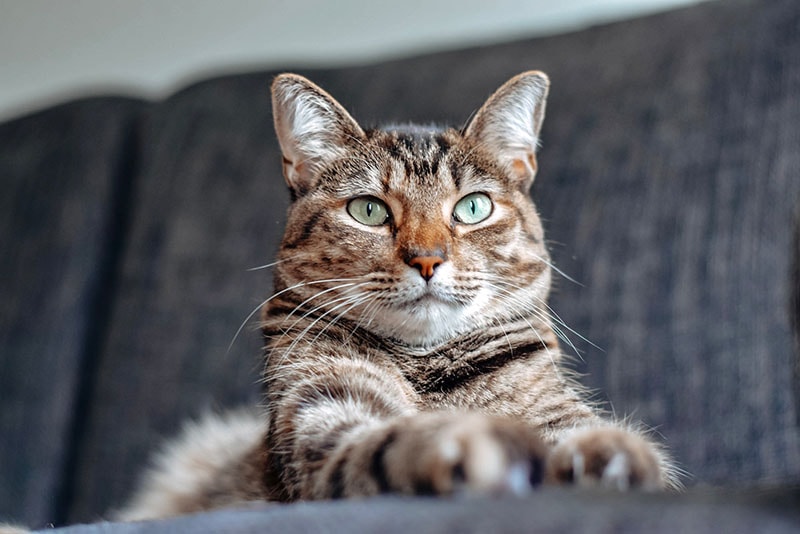
6. Looking for a Mate
Cats that are not spayed can become very vocal during heat cycles. When females are in heat, they will meow or yowl to attract a male for breeding, which can get very loud and unpleasant sometimes for their owners. Males might also meow when they sense a female in heat. These types of behavior can be significantly altered once you neuter and spay your cat, and there are many other health benefits of this procedure.
7. Your Tabby Cat Wants to Go Outside
If your tabby cat is used to spending some time outside or having the freedom to explore your backyard, you will probably catch it meowing near the door. Your cat has by now learned that they can freely go outside if you remove the obstacle!
8. Illness
Cats are very individualistic when it comes to expressing discomfort. While some cats are excellent at hiding their feelings even if they feel sick, others will quickly express their pain. If your cat is meowing excessively, without any obvious reason, they might feel discomfort. You should thoroughly examine your cat and see if you can spot any signs of injury or illness. Your cat may have hurt its leg or have something stuck in its paw. If there is excessive vocalizing without obvious cause, you should take it to the vet to check for any internal injuries or illnesses. If your cat is feeling unwell, there will often be other symptoms paired with being vocal, such as vomiting, diarrhea, lethargy, or a change in appetite.
Conclusion
Cats are mysterious creatures that are sometimes very hard to understand. While some cats will skillfully hide their discomfort from you, others will loudly express their feelings through meowing. If your cat is meowing excessively, it can be due to various reasons, but if otherwise healthy, many will do it to seek your attention. Whether hungry, bored, or lonely, they will meow and seek physical touch or playtime with their favorite person.
Featured Image Credit: Erik Jan Leusink, Unsplash


